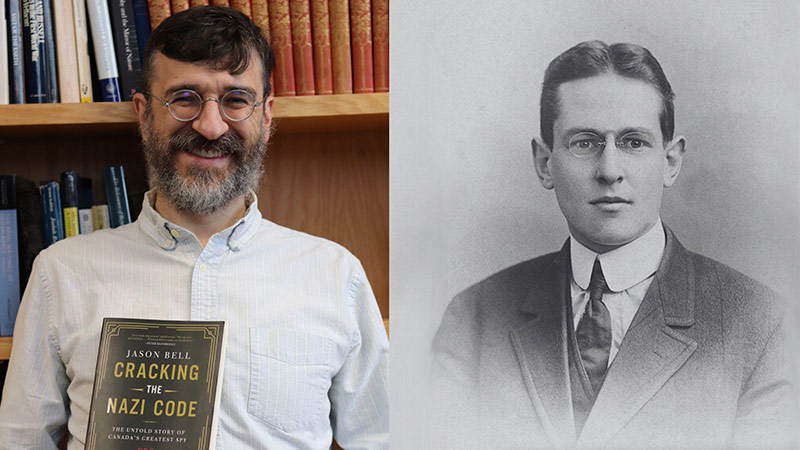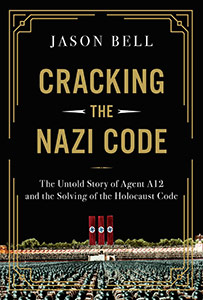Uncovering Canada's greatest spy: Author Jason Bell on wartime espionage, the value of education and the Maritime connection
Author: Camila Lefebvre and Hilary Creamer Robinson
Posted on Dec 19, 2024
Category: Research , UNB Fredericton

Best-selling author and University of New Brunswick (UNB) philosophy professor Dr. Jason Bell shares a last name—but no relation—with Dr. Winthrop Bell, the subject of his thrilling debut non-fiction book, Cracking the Nazi Code: The Untold Story of Canada’s Greatest Spy.
The book details Winthrop Bell’s extraordinary life as a British MI6 spy born in Halifax, N.S., who received his undergraduate education in New Brunswick before becoming a key figure in international intelligence after the First World War.
Published by HarperCollins, it has earned widespread recognition and has topped the Toronto Star's bestseller list throughout 2024.
It was recently honoured with the Vine National Canadian Jewish Book Award (History) and has even been optioned for a potential movie adaptation.
As the present-day Dr. Bell conducted his own mission to uncover the remarkable story of the late Canadian philosopher-spy, he unravelled with it a string of parallels and coincidences.
“I tend to see it as proof of a divine sense of humour,” the author said of the similarities he shares with one of Canada’s most fascinating historical figures.
Over a decade ago, while studying at Vanderbilt University for his PhD, Bell began exploring the intersection between the philosophical movements of pragmatism and phenomenology. Eventually, this led him on a research mission at the University of Goettingen in Germany.
It was there he discovered a century-old dissertation explaining the pragmatist to the phenomenologist, written by a philosophy scholar named Winthrop Bell. Much to Bell’s surprise, documents related to Bell’s espionage career led to UNB’s Harriet Irving Library.
“To find out Winthrop Bell was educated in New Brunswick further reinforced my connection to my research,” said Bell.
But something else piqued the author’s attention.
“I noticed pages missing from Winthrop Bell’s documents and later realized these were restricted by Britain’s Foreign Office,” Bell said.
Intrigued, he obtained access to the long-sealed documents and became the first scholar granted exclusive access to Winthrop Bell’s classified espionage papers—the basis for Cracking the Nazi Code.

“I think that the Maritimes had a big influence on Winthrop Bell,” he said. “New Brunswick students are taught to collaborate, think in different ways and are encouraged to be curious scholars."
“That makes for excellent espionage work.”
And curious Winthrop Bell was. He became an expert in math, physics, philosophy, literature, history, economics and psychology.
“When his government called on him to do this intelligence work during World War Two, he had the framework to do it.
“He’s an excellent example of the value of education. It can prepare people for any number of things in life,” Bell mused.
For Winthrop Bell, that meant a place in history as the first person to warn the world about the dangers posed by the Nazis.
